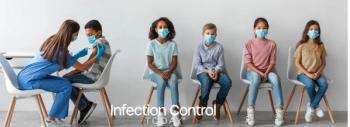
Hydroxychloroquine Fails to Show Efficacy for COVID-19 Prophylaxis
Matthew Pullen, MD: “After examining the data of our 821 participants, we did not find a significant difference in the risk of infection following exposure in those taking hydroxychloroquine and those taking placebo."
The debate about hydroxychloroquine’s effectiveness against COVID-19 continues, but for how long? A study unveiled yesterday added to the preponderance of evidence showing hydroxychloroquine isn’t effective. “We launched this trial not knowing what the answer was for the question: Does hydroxychloroquine prevent COVID-19 disease after exposure?” That’s what David Boulware, MD, MPH, told Infection Control Today®’s sister publication Contagion® yesterday.
Boulware’s study in the
Why does this matter? Because Boulware’s findings came to light just a day after The Lancet and the New England Journal of Medicine
Boulware’s trial consisted of non-hospitalized adults who indicated a high-risk or moderate-risk exposure to COVID-19 through the household or an occupational setting. They were provided the study drug or placebo by mail within 4 days of exposure. This leaves the prophylactic treatment to take place before symptoms typically develop.
The trial consisted of non-hospitalized adults who indicated a high-risk or moderate-risk exposure to COVID-19 through the household or an occupational setting. They were provided the study drug or placebo by mail within 4 days of exposure. This leaves the prophylactic treatment to take place before symptoms typically develop.
The randomized placebo-controlled trial launched on March 17. The trial enrolled 821 participants from across Canada and the United States. Half of the participants received 5 days of hydroxychloroquine while the other half received 5 days of a placebo.
Out of 821 participants, COVID-19 like-illness developed in 107 (13%) participants.
Notably, polymerase-chain-reaction assay confirmation was only available for about 3% of participants. Incidence of likely COVID-19, however, did not differ significantly between participants receiving hydroxychloroquine (49 of 414 [11.8%]) and those receiving placebo (58 of 407 [14.3%]).
Side effects were more common in patients receiving hydroxychloroquine (40.1%) than placebo (16.8%), but no serious adverse effects (including serious heart complications) were reported.
“Our team at the University of Minnesota has just concluded the first randomized, placebo-controlled, double-blind clinical trial of hydroxychloroquine as post-exposure prophylaxis in SARS-CoV-2,” the study’s second author, Matthew Pullen, MD, said. “After examining the data of our 821 participants, we did not find a significant difference in the risk of infection following exposure in those taking hydroxychloroquine and those taking placebo. We also did not find an association between hydroxychloroquine and serious adverse effects in our study population.”
An
“On June 1, 2020, ClinicalTrials.gov listed a remarkable 203 Covid-19 trials with hydroxychloroquine, 60 of which were focused on prophylaxis,” wrote Myron S. Cohen, MD, in the editorial. “An important question is to what extent the article by Boulware et al. should affect planned or ongoing hydroxychloroquine trials?”
This story originally appeared in
Newsletter
Stay prepared and protected with Infection Control Today's newsletter, delivering essential updates, best practices, and expert insights for infection preventionists.







